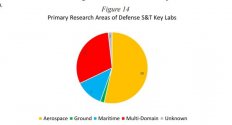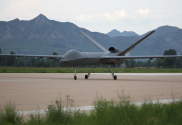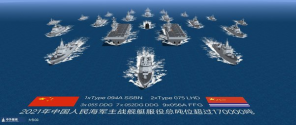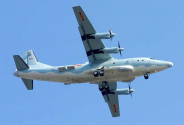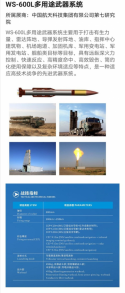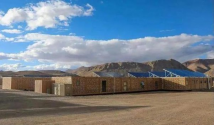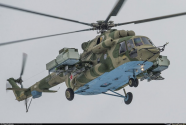One thing that we should've learned from the Ukraine war is that morale matters. How did Ukraine, which went from basically refusing to fight Russian troops in 2014 and people in Donbass and Crimea seeing them as liberators from a bigger and richer brother country, go to fighting to the death against Russian troops against literally hopeless odds i.e. Mariupol?
Nationalist radicalization.
A bit of history: US has always flirted with ethnic nationalists, fascists and right wing dictators, especially in small countries. Meanwhile they hate socialists and more authoritarian large, multiethnic empires. Whether that be Spanish fascism and
, to being soft on German Nazis and Imperial Japanese fascists after WW2 to the degree where
and
, the US has always had a soft spot for the Nazis. For those a little bit below fascism, like mere nationalist authoritarian dictators such as Syngman Rhee, Chiang Kai Shek, etc. the examples are almost too numerous to list. The US antipathy towards socialism, on the other hand, has never been a secret, and it is common knowledge.
But why? What's in it for them to support fascist dictators while opposing socialism and pure authoritarians?
You see, the US recognizes one simple fact that was even declared in the Project for a New American Century: if a single country or alliance controls Europe or Southeast Asia, they'll have the resources to push the US back to the western hemisphere and become irrelevant.
So why nationalism? Why is nationalism not a real threat for the US? A right wing nationalist government has 0 foreign attraction. Everyone asks, what's in it for me? And a right wing nationalist government really has nothing to offer. Their ideology holds 0 attractiveness for anyone outside the country, this has been proven over and over again. German Nazi's allies all turned on them. Imperial Japan could never stop rebellions. Thus, it is unlikely to be capable of making the necessary alliances, and can be checked by US own alliances. Thus, a right wing nationalist government is no threat diplomatically.
Note this: they keep saying how nobody in China's neighborhood actually likes China, and point to the examples of India, Japan and Vietnam. But even ignoring that being objectively untrue (China has North Korea, Russia, Krygyzstan, Tajikistan, Pakistan, Nepal, Laos, etc) guess what?
actually that's far more true for India, Japan or Vietnam. Japan - surrounded by enemies (China, Russia, North/South Korea). India - surrounded by enemies (China, Pakistan, Bangladesh, Myanmar). Vietnam - surrounded by enemies (China, Laos, Cambodia). Can India, Japan or Vietnam ever gather a large enough alliance to consolidate the resources of Afro-Eurasia? No.
What about right wing nationalist governments in major countries? Also no threat. In democracies like India, they can be kept perpetually destabilized by arming the opposition with a constant stream of negative news to keep them on their toes. India today is actually weaker than it was in 2014 when Modi became PM. India has declined relative to China, from 1/4 Chinese GDP per capita to 1/6 Chinese GDP per capita. In autocracies, they can pull the democracy card, ethnic oppression card, and they'd actually be right. See India, again.
What is the ideal world for them? A world where every major country is broken up into its ethnic constituents, each being weak, easily played off against each other. Failing that, a world where all the small countries are radicalized and major countries are wrecked by instability and ethnic violence while they sit above it all, mediating and controlling everything. Divide and conquer on a global scale. British Imperialism applied to the entire world in perpetuity.
How does this relate to Ukraine? Nationalist radicalization is their playbook over and over again. We've seen it in South Vietnam and South Korea with right wing dictators killing their own people by the millions, we've seen it in Latin America with support for the Brazilian and Argentine military juntas, we've seen it in Iraq with support of balkanizing them between Kurd/Sunni/Shia, we've seen it in Yugoslavia by breaking up the federation and putting Bosnians vs. Serbs vs. Croats vs. Albanians vs. Kosovans, we've seen it in Hong Kong calling Chinese people locusts and radicalizing the students... today we see the result in Ukraine, where Ukrainians hate Russians more than they love themselves. In fact, Ukrainians became so radicalized, they even sent Azov to Hong Kong. If Russians paid attention they would not have underestimated Ukrainian resolve - if Ukrainians are so radicalized that they would send extremists to a far flung country they had little to do with, just to virtue signal, what are they gonna do in a defensive war?
So in the event that the Taiwan situation becomes urgent, expect massive waves of right wing, racist propaganda pumped everywhere. Expect Taiwanese to become extremely radicalized and in fact I'd argue that they are actually extremely radicalized, just like Ukraine in 2015 onwards.
Past doesn't mean future, Ukraine in 2014 is not Ukraine in 2022. When Putin said denazification was necessary, this is what he means by denazification.

